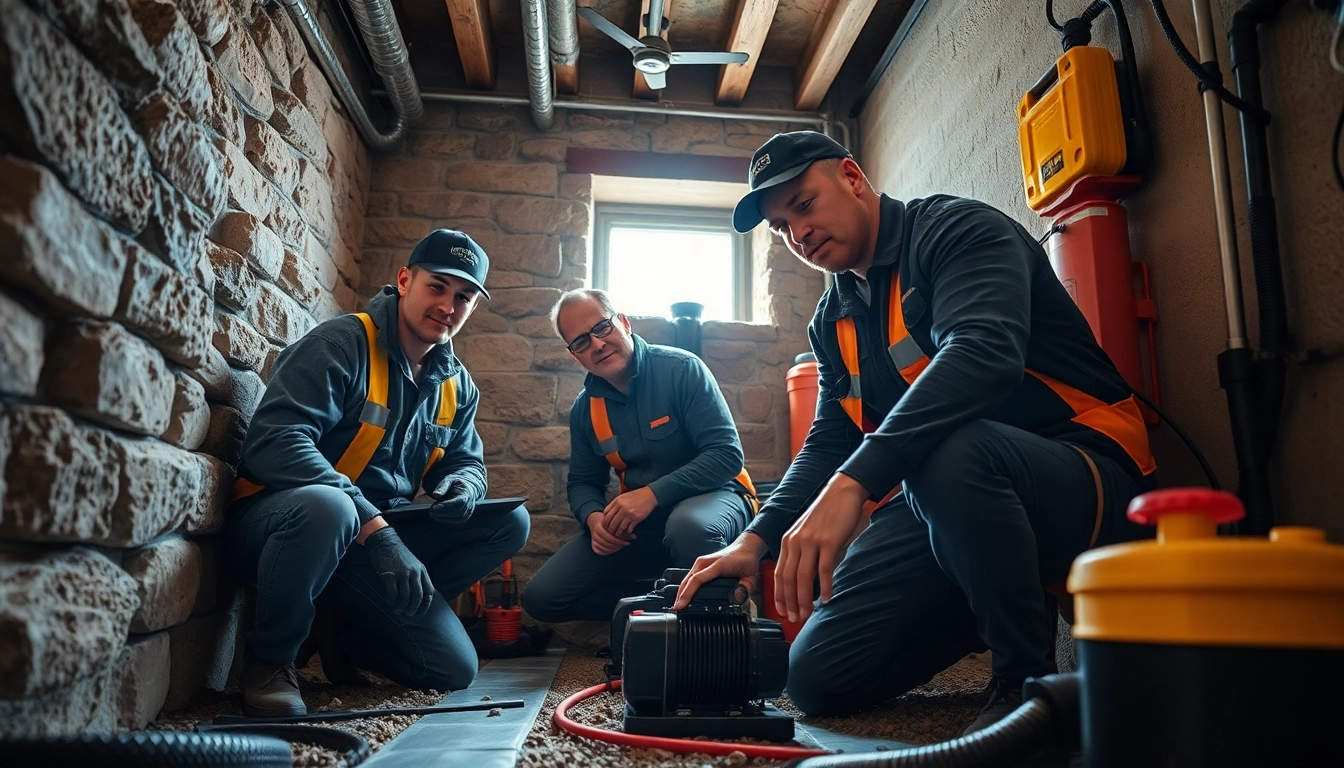Understanding the NVQ Level 7 Diploma
What is the NVQ Level 7 Diploma?
The NVQ Level 7 Diploma in Construction Senior Management is a prestigious qualification, equivalent to a Master’s degree, designed for professionals in the construction sector. This qualification focuses on advanced skills and management techniques required to lead complex construction projects and manage multidisciplinary teams. It encompasses various aspects of construction management, including strategic planning, financial analysis, project management, and team leadership. The goal is to prepare candidates for roles that involve high-level decision-making and comprehensive responsibility over construction projects.
Importance in the Construction Sector
In today’s rapidly evolving construction environment, the NVQ Level 7 Diploma plays a crucial role. It helps professionals not only enhance their skills but also their understanding of industry standards and compliance requirements. As construction projects become more intricate, having a well-educated management team becomes essential in ensuring that projects are completed efficiently, on time, and within budget. Furthermore, this qualification aligns with the increasing demand for sustainability and innovation in construction practices.
Eligibility and Entry Requirements
To enroll in the NVQ Level 7 Diploma, candidates typically need substantial experience in the construction industry, along with relevant qualifications such as an NVQ Level 6 or equivalent. Applicants are expected to demonstrate leadership capabilities and a strong understanding of construction processes and practices. The assessment process often involves submission of documented evidence of management experience and competencies aligned with the qualification’s units.
Detailed Unit Breakdown
Key Units Covered in the Diploma
The NVQ Level 7 Diploma includes various units that cover key aspects of construction management. Some of the critical units comprise:
- Unit 7001: Manage Teams in Construction – This unit focuses on developing effective leadership skills, facilitating communication among team members, and fostering a productive team environment.
- Unit 7002: Lead and Participate in Construction Management – Here, students learn to oversee projects, making strategic decisions while ensuring adherence to project specifications.
- Unit 7003: Challenge, Identify, and Manage Risk – This emphasizes risk assessment methodologies and the development of risk management strategies for construction sites.
- Unit 7004: Lead Corporate Social Responsibility – Candidates assess the importance of ethical practices and sustainability within construction projects.
Assessment Criteria and Methods
The assessment for the NVQ Level 7 Diploma typically involves a combination of workplace assessments, project reports, and reflective accounts documenting the candidate’s experiences and learning outcomes. Assessment methods may include:
- Portfolio Submission: Candidates compile evidence demonstrating their competencies against the NVQ criteria.
- Observation: Assessors may directly observe candidates in their workplace to evaluate their performance in real-time.
- Professional Discussion: This allows candidates to articulate their understanding and experiences related to the qualification’s units.
Common Challenges Faced
While pursuing the NVQ Level 7 Diploma, candidates may encounter several challenges. Some common hurdles include:
- Time Management: Balancing study with professional responsibilities can be demanding; candidates should develop a structured study plan.
- Evidence Collection: Compiling sufficient evidence to meet assessment criteria can be daunting; orientation sessions with assessors can provide clarity.
- Regression in Industry Practices: Continuous changes in regulations can create confusion; thus, staying updated through industry news and training is vital.
Implementing Best Practices in Construction Management
Effective Team Leadership Strategies
Leadership within construction management is pivotal for project success. Effective strategies include:
- Fostering Collaboration: Encouraging teamwork and open communication ensures all voices are heard, promoting innovative solutions.
- Providing Continuous Feedback: Regular performance reviews help identify areas for improvement, enabling team members to grow in their roles.
- Setting Clear Objectives: Clearly defined roles and goals direct team focus and align efforts towards common objectives.
Risk Management in Construction Projects
Risk management is critical in construction, where the stakes are high. Implementing best practices involves:
- Risk Assessment Workshops: Regular workshops with team members can identify potential risks early, allowing for preemptive action.
- Developing Contingency Plans: Preparing alternative strategies for identified risks ensures that projects can pivot when necessary.
- Regular Monitoring and Review: Continuous evaluation of risk management processes helps organizations adapt and improve their approach.
Ensuring Compliance with Regulations
Compliance with industry regulations safeguards against legal issues and enhances operational efficiency. Strategies include:
- Training Programs: Regular training on current legislation helps all team members stay informed about their responsibilities.
- Policy Reviews: Conducting policy audits ensures compliance and identifies areas for potential improvement in practices.
- Professional Development: Attending industry seminars and workshops keeps management up-to-date with changing regulations and best practices.
FAQs on Level 7 NVQ Diploma Answers
Common Questions by Candidates
When considering the NVQ Level 7 Diploma, candidates frequently ask:
- How long does it take to complete? Completion typically varies based on individual pace, but most candidates finish within one to two years.
- Is there a pass rate? There is no set pass rate; assessment depends on demonstrating competence through the prescribed criteria.
- Can I work while studying? Yes, many candidates find it beneficial to apply their learning in real-time within their existing roles.
Resources for Additional Information
For further insights and guidance on the NVQ Level 7 Diploma, candidates may consult resources such as:
- The official NVQ framework documentation, which provides comprehensive information about qualifications.
- Professional websites and forums where candidates can exchange experiences and advice.
- Books covering advanced construction management topics and case studies.
How to Contact Assessor Services
For queries regarding assessments, candidates are encouraged to contact their training provider or assessors directly through official channels established for student support and inquiry.
Future Opportunities with Level 7 NVQ
Career Progression Possibilities
Completing an NVQ Level 7 Diploma opens numerous doors in the construction industry. Graduates may advance to senior roles such as:
- Project Manager
- Contracts Manager
- Construction Director
- Site Manager overseeing large scale projects
Networking within the Construction Industry
Networking is vital for professional growth. Joining industry organizations such as the Chartered Institute of Building (CIOB) provides access to valuable contacts, resources, and professional development opportunities.
Continuing Education and Specializations
Upon completion of the Level 7 NVQ, professionals may also consider further education such as doctoral programs in construction-related fields or specialized certifications in emerging areas like sustainable building practices or advanced project management techniques.
For anyone pursuing the level 7 nvq diploma in construction senior management answers, understanding these components is essential for ensuring a fulfilling educational experience and achieving notable career success in the complex landscape of the construction industry.



